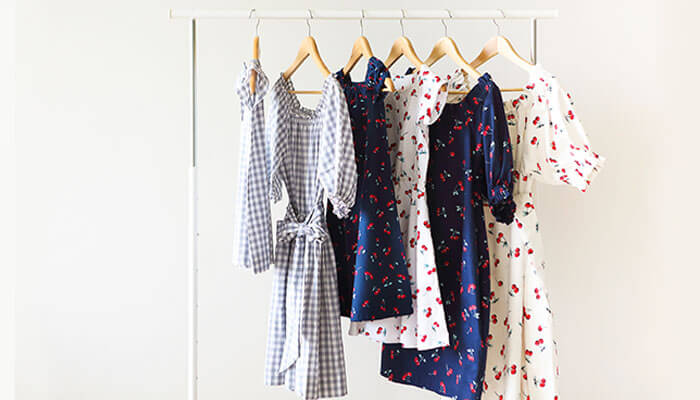Since online selling is easier than ever, more people want to establish their e-commerce businesses. However, making money from a new business is easier said than done. Entrepreneurs must consider factors such as budget, customer needs, and their rival companies. Another thing entrepreneurs must think about is how they want to sell their products. Two standard methods for selling products are private labeling and white labeling. This short guide outlines their differences and how to choose the right selling approach for your business. Let us explore the difference between white label Vs. private label.
White Label Vs. Private Label Defined
White label manufacturing, or white-labeling, is a process that involves a retailer or a person who wants to buy a product for resale. They must work with a manufacturer who agrees to sell the product under a rebrand using the retailer’s name and packaging designs.
A white-label agreement usually includes the following terms:
1. The retailer accepts reselling a generic product from the manufacturer and has no control over product modifications or variations
2. The manufacturer can change the product’s components, ingredients, characteristics, and manufacturing details
3. The retailer can design the packaging and branding of the product
4. The manufacturer can sell the same generic product to other retailers under new branding
5. The manufacturer retains their branding or own trademarks for the generic product they are producing for their retailers
Meanwhile, private labeling or private label manufacturing is a process whereby a manufacturer or a supplier produces offerings exclusively for a third party. This process means that the manufacturer makes profits by selling products to third parties, and the third party makes money by selling directly to consumers.
A private label agreement includes the following terms:
1. The retailer controls the type of product and can make any changes to it that make it unique from the supplier’s generic product
2. The manufacturer works with the retailer to create the product with specific customizations in terms of composition, ingredients, package quantity, or other distinctive characteristics
3. The manufacturer has control over the production process, but they cannot sell the same product to other retailers
4. The retailer has control over the design of the product packaging and branding
5. The manufacturer retains the branding or identity associated with private label products
Differences Between White Label Vs. Private Label
Retailers must know the difference between white and private labeling to know the best approach for their business. This section underscores the critical differences between the two selling processes.
Product price
Customers usually pay more when buying private label products than white label ones.
With a private label, buyers purchase a product exclusive to a particular retailer. This advantage means the product has unique features that competitor stores may lack.
Meanwhile, products with white labels may be more affordable for consumers. Since multiple retailers sell the same products, they may be more accessible.
Distribution
Companies can get wider distribution for their white-label product lines. Since several retailers with the same products already have a significant presence, there is generally demand from past buyers. By choosing white-label products, a retailer can get more people to notice them.
Meanwhile, retailers with private-label products often start with exclusive distribution. Although they can only offer their products to a small pool of customers, they can still get their business off the ground.
Product modifications
Retailers can make any modifications to their private label products. Often, these changes are topical or aesthetic and do not affect the product’s function.
For example, a retailer that buys private label clothing can change the colors of the product or its packaging.
Meanwhile, suppliers of white label products do not allow retailers to change product lines from another company. These sellers can only customize the brand or label of the product rather than any product component.
Market introduction
Retailers selling white label goods may profit faster than companies selling private label products. Since customers often already trust popular retail businesses, they are more confident buying generic products.
If you want to sell your new product as quickly as possible, white labeling might be your best choice.
Legalities
It is easy to get into the market through white labeling because the sale of the product is often already legal. Past retailers have already addressed the legalities involving the sale of the same goods.
Meanwhile, a new private label product may take longer to reach the market if the retailers must first secure special licenses.
When To Choose White Label
If you are uncertain whether selling white label products is wise, we can help you decide. The following are indications that white labeling is the best choice for your business:
1. You do not have expertise in the product you want to sell
2. You have a brand demand, but you do not have the product to fulfill it
3. You want to sell your product to customers as soon as possible
4. You do not have a product research and development (R&D) budget
5. The available white label products meet your requirements in terms of quality
6. You have limited funds because white label products can help your brand grow before you need more funding from other sources
When To Choose Private Label
Selling private label products comes with significant advantages. The following are indications that private labeling is the best choice for your business:
1. You already have a product with features that other companies are not offering yet
2. The product that you have is superior to white label product offerings
3. You plan to manufacture the product yourself in the future
4. You want to lower manufacturing costs due to low product volume
5. You need to expand your product lines
Choose the Right Manufacturing Process for Your Business
To come up with the right selling strategy, you must evaluate your business needs. This way, you can identify the gaps in your processes that a manufacturer can help fill.
Regardless of your chosen approach, you will benefit from partnering with a supplier since you are offloading manufacturing. This strategy allows you to focus on other crucial aspects of the business, such as sales and marketing.
The partnership also does not affect customer perception, since you still control product branding. You only have to find the appropriate manufacturer to give you high-quality products that your customers will love.



